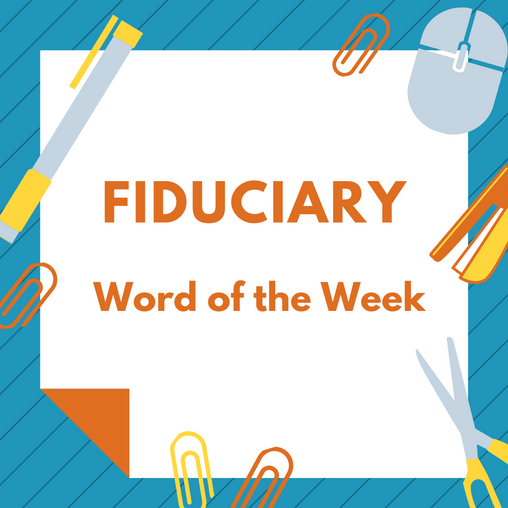

[ fi-doo-shee-er-ee, -dyoo- ]
Law. a person to whom property or power is entrusted for the benefit of another.
Law. of or relating to the relation between a fiduciary and his or her principal:a fiduciary capacity; a fiduciary duty.
of, based on, or in the nature of trust and confidence, as in public affairs:a fiduciary obligation of government employees.
depending on public confidence for value or currency, as fiat money.
A fiduciary is a person or organization that acts on behalf of another person or persons to manage assets. Essentially, a fiduciary owes to that other entity the duties of good faith and trust. The highest legal duty of one party to another, being a fiduciary requires being bound ethically to act in the other's best interests.
A fiduciary might be responsible for general well-being, but often the task involves finances—managing the assets of another person, or of a group of people, for example. Money managers, financial advisors, bankers, accountants, executors, board members, and corporate officers all have fiduciary responsibility.